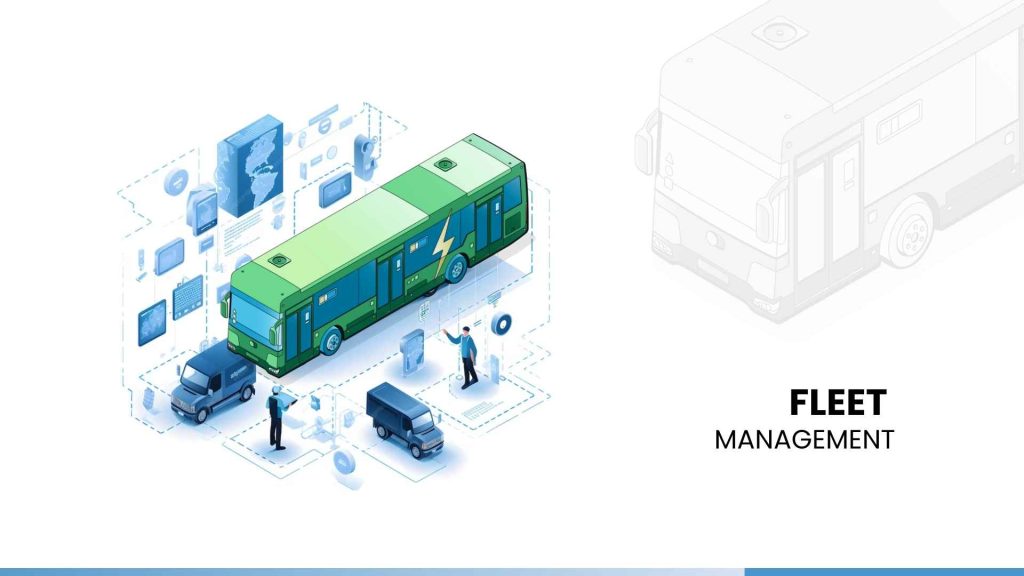Fleet management refers to managing a company’s or organization’s vehicles, including cars, trucks, vans, buses, and other vehicles. This involves a combination of tasks and responsibilities aimed at optimizing the use of the fleet, controlling costs, ensuring the safety of drivers and cars, and maximizing overall efficiency. Fleet management is critical for businesses or entities that rely on vehicles as a core part of their operations, such as transportation companies, delivery services, construction companies, and government agencies.
What is Fleet Management?
Fleet management oversees and optimizes vehicles to ensure they operate efficiently, safely, and cost-effectively. It encompasses various tasks, including vehicle acquisition, maintenance, tracking, and scheduling. The primary goals of fleet management are to maximize productivity, minimize operational costs, and enhance the safety of both drivers and the public.
Key Components of Fleet Management
Vehicle Acquisition and Disposal: One of the fundamental aspects of fleet management is choosing the suitable vehicles for the organization’s needs. Fleet managers must consider aspects like vehicle type, size, fuel efficiency, and maintenance requirements. Proper disposal of older vehicles through resale or recycling is also an essential part of this process.
Supervision and Repairs: Normal maintenance is crucial to ensuring the longevity and safety of the fleet. Vehicle fleet managers must establish maintenance schedules, monitor vehicle conditions, and address repairs promptly. Effective maintenance programs can reduce downtime repair costs and enhance vehicle performance.
Driver Management: Ensuring drivers are well-trained, safe, and responsible is critical to vehicle fleet management. Driver management involves monitoring driving behavior, addressing safety concerns, and implementing policies and training programs to promote safe driving practices.
Fuel Management: Fuel prices can significantly affect a fleet’s expenses. Effective fuel management strategies include monitoring fuel consumption, implementing fuel-efficient technologies, and optimizing routes to reduce unnecessary mileage.
Asset Tracking: GPS and telematics systems allow fleet managers to track each vehicle’s real-time location, speed, and status. This data can be invaluable for route optimization, monitoring driver behavior, and improving overall efficiency.
Benefits of Fleet Management
Cost Reduction: Efficient vehicle transport management can lead to significant cost savings through improved fuel efficiency, reduced maintenance expenses, and optimized vehicle utilization.
Enhanced Safety: By monitoring driver behavior and implementing safety policies, vehicle transport management can significantly reduce accidents and improve the safety of both drivers and the public.
Improved Productivity: Streamlined operations, optimized routes, and reduced downtime lead to improved productivity and customer satisfaction.
Compliance: vehicle transport management helps organizations ensure compliance with industry regulations and safety standards, reducing the risk of fines and legal issues.
Technological Advancements in Fleet Management
Fleet management has evolved significantly with the integration of cutting-edge technology:
Telematics: Telematics systems provide real-time data on vehicle location, performance, and driver behavior. This technology enables better decision-making, route optimization, and proactive maintenance.
Internet of Things: IoT sensors and instruments can monitor various aspects of a vehicle, including engine health, tire pressure, and cargo temperature. This data helps prevent breakdowns and ensures goods are transported under optimal conditions.
Predictive Analytics: Machine learning and AI-driven analytics can predict maintenance needs, reducing unplanned downtime and preventing costly breakdowns.
Mobile Apps: Many fleet management solutions now include mobile apps that allow drivers to receive instructions, log hours, and report issues in real-time, improving communication and efficiency.
Understanding fleet management is crucial for organizations that rely on vehicles to deliver their goods or services. Efficient vehicle transport management not only reduces costs but also enhances safety and productivity. With the aid of advanced technology, organizations can now optimize their fleets in unimaginable ways. As technology advances, vehicle transport management will become increasingly vital in modern business operations.
How Can Acumatica Enhance
Acumatica Cloud ERP solution has the potential to significantly enhance vehicle fleet management for businesses and organizations. By integrating various aspects of vehicle transport management into a single platform, Acumatica streamlines operations, offering real-time data and insights crucial for making informed decisions.
Its features, including inventory management, maintenance scheduling, and financial analysis, enable better control over vehicle assets and costs. Acumatica’s adaptability, scalability, and accessibility from anywhere make it a powerful tool for improving efficiency, safety, and cost-effectiveness in fleet management, ultimately contributing to enhanced productivity and profitability. Feel free to reach out to us for a tailored ERP solution.

Vijay comes with a vast experience in ERP and enterprise solutions space with about 20 years of experience in various packaged application like Acumatica, SAP, Orion, Salesforce.com, SugarCRM and, SalesLogix.

